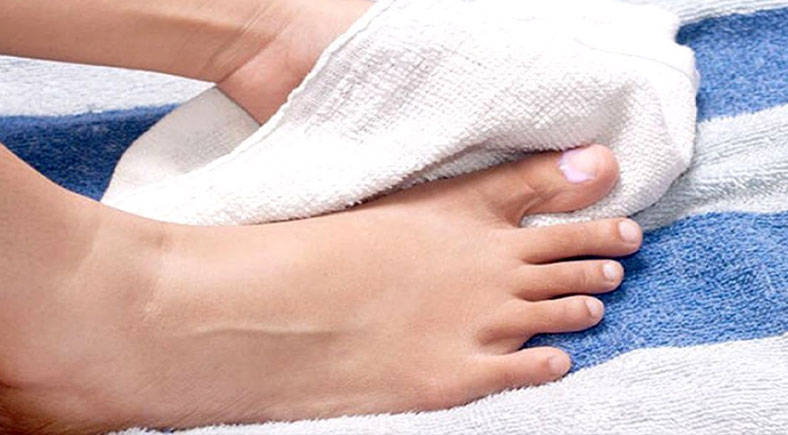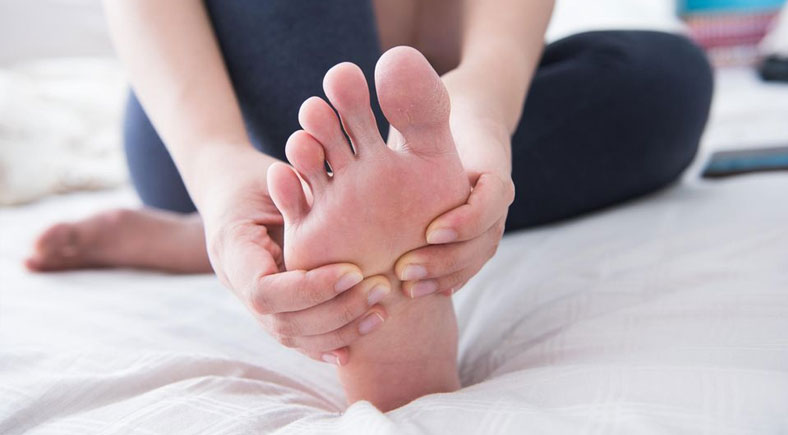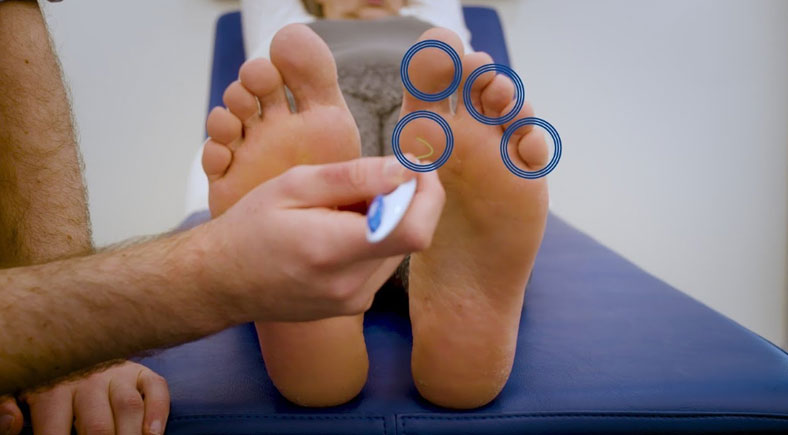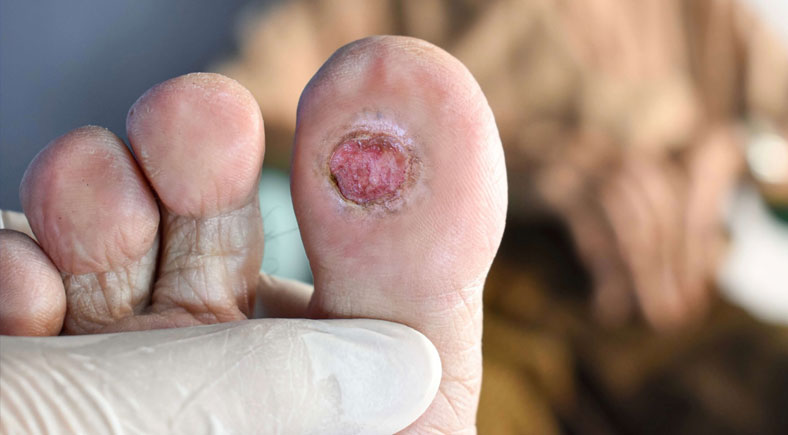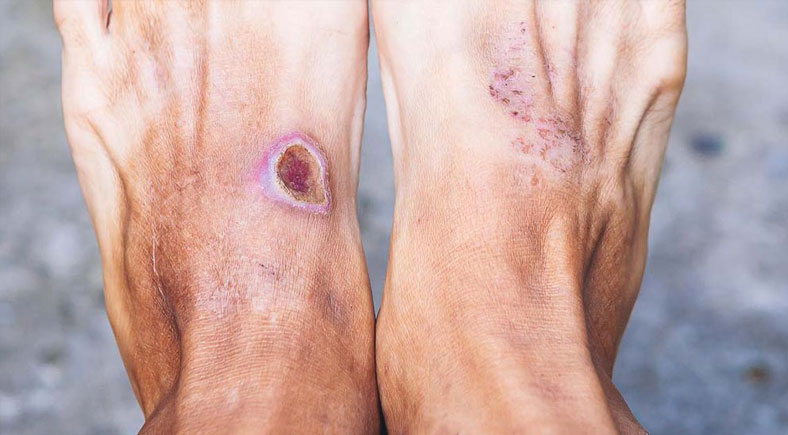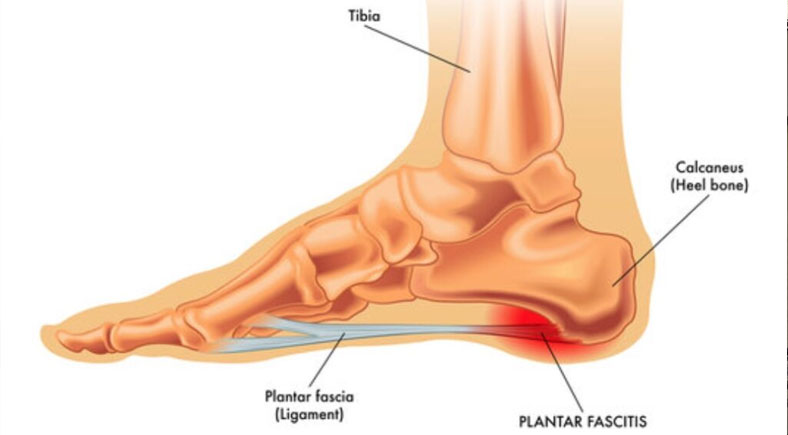Introduction
Living with diabetes brings many challenges, and one of the most serious is the risk of developing diabetic foot ulcers. These open wounds can form even from small cuts or pressure spots, and if ignored, they can lead to infections, hospitalization, or even amputation.
If you are searching for diabetic foot ulcer treatment in Chicago, you are not alone. Thousands of patients in Illinois face this condition every year. At the Foot & Wound Institute, our mission is to provide advanced wound care services both at our clinic and through our unique mobile wound care service across Chicago and nearby suburbs.
We combine medical expertise, compassionate care, and modern treatment techniques to ensure that every patient gets the best possible chance at healing.
What Is a Diabetic Foot Ulcer?
A diabetic foot ulcer is an open sore or wound, usually located on the bottom of the foot. These ulcers happen because diabetes damages nerves and blood vessels, making it harder for the body to heal. Even a small blister or scrape can turn into a serious wound.
According to the American Diabetes Association:
- About 15% of people with diabetes will develop a foot ulcer in their lifetime.
- Foot ulcers are the leading cause of diabetes-related hospital admissions.
- Early treatment significantly reduces the risk of amputation.
Causes and Risk Factors
Causes and Risk Factors
The most common causes of diabetic foot ulcers include:
- Poor circulation – diabetes restricts blood flow to the feet.
- Nerve damage (neuropathy) – reduces sensation, so small cuts often go unnoticed.
- Foot deformities – bunions, hammertoes, or calluses increase friction.
- Ill-fitting shoes – cause pressure points and blisters.
- Uncontrolled blood sugar – slows down healing and weakens immunity.
Who Is Most at Risk?
- Seniors with long-standing diabetes
- Patients with a history of ulcers or infections
- Overweight or obese patients
- Smokers (slower healing due to poor circulation)
- People with kidney or heart disease
Symptoms to Watch Out For
A diabetic ulcer may start small but progress quickly. Look for:
- Redness or swelling in the foot
- Drainage in socks or shoes
- Foul odor from the wound
- Thick, callused skin around the sore
- Black or dead tissue (a sign of gangrene)
- Fever, chills, or fatigue (infection warning)
Treatment Options at Foot & Wound Institute
At our Chicago wound care clinic, we provide a personalized plan for every patient. Our treatment may include:
- Wound Cleaning and Debridement
- Removal of dead tissue to promote healthy healing.
- Infection Control
- Advanced dressings, antibiotics, and monitoring for early signs of infection.
- Pressure Offloading
- Specialized footwear, casts, or devices to reduce stress on the ulcer.
- Blood Sugar Management Support
- Coordinating with your diabetes care team to optimize healing.
- Nutrition Counseling
- Protein-rich diets, vitamins, and hydration tips to boost recovery.
- Follow-Up Monitoring
- Regular check-ups to ensure progress and prevent recurrence.
Mobile Wound Care in Illinois
Many patients struggle to travel to clinics due to mobility issues. That’s why the Foot & Wound Institute offers mobile wound care services in Chicago and surrounding areas.
Benefits of mobile wound care:
- Comfort of treatment at home
- Lower risk of infection from hospital visits
- Ideal for seniors and bedridden patients
- Same high standard of medical care as in our clinic
Preventing Diabetic Foot Ulcers
Prevention is always better than cure. Here are some expert tips:
- Daily Foot Checks – inspect for cuts, blisters, or redness.
- Proper Footwear – choose shoes that fit well and don’t rub.
- Moisturize Skin – prevent cracks that can lead to wounds.
- Control Blood Sugar – follow your diabetes management plan.
- Quit Smoking – improves blood flow and healing.
- Routine Checkups – visit a podiatrist or wound care specialist regularly.
Lifestyle Tips for Faster Healing
If you already have a wound, these lifestyle changes can speed up recovery:
- Eat foods rich in vitamin C, zinc, and protein.
- Stay hydrated.
- Keep blood sugar within the target range.
- Avoid walking barefoot, even at home.
- Follow your wound care routine exactly as prescribed.
Why Choose Foot & Wound Institute in Chicago?
- Specialized Care – we focus only on wound management.
- Mobile Services – we come to you for convenience and safety.
- 24/7 Availability – urgent wound care when you need it.
- Certified Experts – trusted professionals with years of experience.
- Patient-Centered Approach – compassionate, individualized care.
FAQs About Diabetic Foot Ulcers
Q1: How long does it take for a diabetic foot ulcer to heal?
Healing can take weeks or months depending on severity, blood sugar control, and overall health. With expert care, most ulcers improve much faster.
Q2: Can I treat a diabetic ulcer at home?
Basic cleaning helps, but diabetic ulcers require professional care. Home remedies alone are not enough and may delay proper healing.
Q3: What happens if a diabetic ulcer is left untreated?
Untreated ulcers can lead to infection, gangrene, hospitalization, or amputation. Early treatment saves lives and prevents complications.
Q4: Does insurance cover wound care services?
Many insurance plans cover diabetic wound care. Contact our office for details about your plan.
Final Thoughts & Call to Action
A diabetic foot ulcer is not just a wound—it’s a medical emergency. With the right treatment, patients can avoid complications and live healthy, active lives.
At the Foot & Wound Institute in Chicago, we are proud to provide both in-clinic and mobile wound care services. Whether you’re managing an early ulcer or dealing with a complex wound, our team is here to help.Call us today to book a consultation or request our mobile wound care service in Illinois. Don’t wait—early action is the key to healing.



